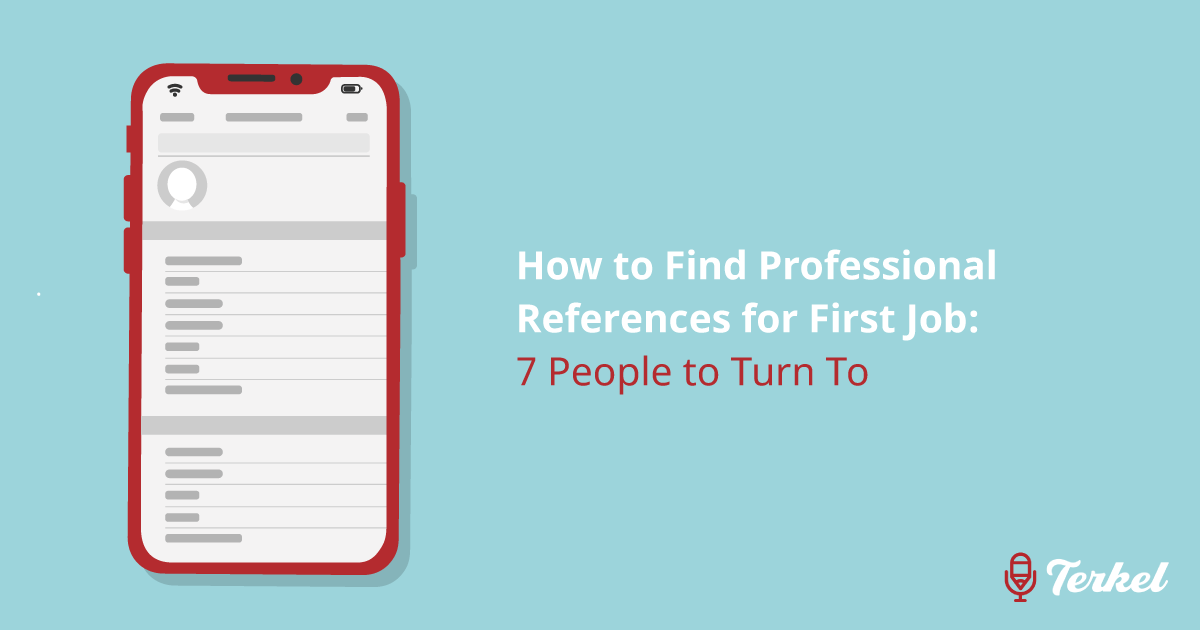

September 16, 2021
Who is one professional reference you can turn to in a job search when you don’t have a lot of experience or a strong network of connections?
To help you navigate the challenges of providing a professional reference for your first job, we asked HR and business professionals this question for their insights. From teachers to alumni networks, there are several suggestions of who to turn to for your first job.
Here are seven strategies you can use to find a professional reference:
Finding professional references for your first job can be tricky. One strategy I used in my early job hunts was to ask my club advisor to be my reference. I was an active member of a student organization, putting in countless hours to fundraise, plan, and host events on campus.
If anyone could speak about my work ethic, it was my club advisor. I suggest you reach out to the person who oversees your club or volunteer efforts for a reference, as they truly have witnessed your hard work and dedication.
Meryl Schulte, Markitors
I’ve learned over the years that each and every connection is important. I’ve been very fortunate in my time to work with plenty of people who inspire me, who understand what it’s like to build something with me. There are plenty of aspects to my personality and work ethic that these people can speak to, and I often tailor who I include in my references to reflect that.
If you find yourself needing references to showcase your experiences, think about the teammates and managers who really worked with you to achieve your goals. Working together as a team is important for any company, so illustrating that you function well as a team member is integral.
Marc Atiyeh, Pawp
If you have a friend who works within the same industry or similar business, put them down as a referral. Send them your resume and portfolio, go over your main points of experience. Help them be informed of your work, don’t send them in blind. They usually will be more than willing to help you out.
Tamara Mayne, Brooklyn Candle Studio
When you don’t have a lot of experience, high school or college professors can reference an applicant’s productive capacity and personal character. Teachers witness students’ engagement in current events, their ability to submit assignments on time, and can reference the quality of work submitted for completion.
In addition, during an individual’s high school and college years, teachers and professors witness an individual’s personal and academic growth. Educator recommendations can be used as a reflection of how the individual will perform in their career.
Annette Harris, Harris Financial Coaching
Organizations and charities you’ve volunteered for in the past are excellent references to vouch for your character and attitude towards service. Not all people have the heart to become volunteers, so it will leverage your commitment and hard work to cause and advocate close to your heart.
Being a volunteer in the past indicates that you are a professional willing to go beyond what is required. In return, hiring managers and recruiters will have an increased chance of hiring you.
Nunzio Ross, Majesty Coffee
Alumni networks are often an untapped resource for those looking for a new job. Networking on sites like LinkedIn can feel intimidating, and alumni networks take the pressure off since you already have a mutual association — your university! Having informational calls with these individuals can help connect you with their colleagues in your desired field and help you establish a strong network of connections so you can continue to grow throughout your career.
Brandon Brown, Grin
Early in your career, trainers are a valuable yet, often untapped reference resource. When screening for entry-level roles, recruiters do not expect applicants to have much experience or a large network of references. Potential is more valuable than prowess at this stage of your professional journey. More than anything, employers want candidates who are willing and able to learn.
Mentors and trainers are best equipped to attest to these traits. Supervisors or colleagues who trained you are in the best position to vouch for your ability to learn quickly, ask thoughtful questions, and develop into an asset. Asking your on-the-job instructors to write your references is a way to prove to recruiters and potential employers that you will ace training and are worth the hiring investment.
Michael Alexis, TeamBuilding
Terkel creates community-driven content featuring expert insights. Sign up at terkel.io to answer questions and get published.